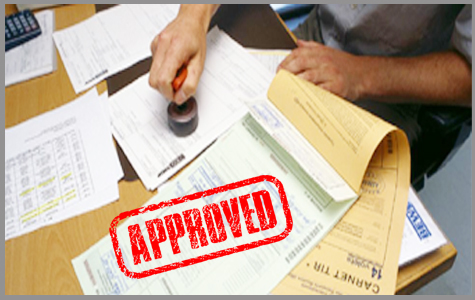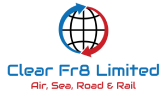Importing Meat to the UK: A Comprehensive Guide
The process of importing meat into the UK has undergone significant changes with the introduction of the new Border Target Operating Model (BTOM) regulations. These regulations, aimed at enhancing food safety and biosecurity, impose stricter controls and documentation requirements for meat imports.
This article provides a comprehensive guide on the new BTOM regulations, the required documentation, and the key steps importers must follow to ensure compliance.
The Border Target Operating Model (BTOM) is part of the UK government's efforts to streamline and strengthen border controls post-Brexit. The primary goals of BTOM are to protect public health, ensure food safety, and prevent the introduction of animal diseases. For meat importers, this means adhering to new protocols that involve detailed documentation, enhanced inspection processes, and stricter compliance measures.
Key Components of the BTOM Regulations
1. Pre-Notification Requirements
Importers must provide pre-notification of meat shipments to the relevant authorities. This involves submitting detailed information about the shipment, including the type of meat, quantity, origin, and intended destination. Pre-notification allows authorities to prepare for inspections and ensure that all necessary documentation is in place.
2. Health Certificates
All meat imports must be accompanied by an official health certificate issued by the competent authority in the exporting country. This certificate must confirm that the meat complies with UK standards and is safe for human consumption. The certificate should include details about the processing, handling, and storage conditions of the meat.
3. Import Licenses
Certain types of meat may require specific import licenses, depending on their origin and type. Importers should check with the Department for Environment, Food & Rural Affairs (DEFRA) to determine if an import license is needed for their particular shipment. Obtaining the necessary licenses in advance is crucial to avoid delays at the border.
4. Inspection and Sampling
BTOM regulations mandate rigorous inspection and sampling of meat shipments upon arrival at UK borders. Border control officials will conduct physical inspections to verify the integrity of the packaging and the condition of the meat. Samples may be taken for laboratory analysis to ensure compliance with safety standards.
5. Traceability and Record-Keeping
Importers must maintain detailed records of their meat shipments, including documentation related to pre-notification, health certificates, and inspection results. These records must be kept for a specified period and made available to authorities upon request. Traceability is essential for addressing any food safety issues that may arise.
Steps to Import Meat into the UK under BTOM Regulations
1. Verify Eligibility
Before importing meat, ensure that the exporting country is approved to export meat to the UK. The list of approved countries is maintained by DEFRA and is subject to change based on the latest assessments of animal health and food safety standards.
2. Obtain Necessary Documentation
Gather all required documentation, including the official health certificate, import license (if applicable), and any additional paperwork specified by UK authorities. Ensure that all documents are correctly completed and authenticated by the relevant authorities in the exporting country.
3. Pre-Notify the Shipment
Submit a pre-notification to the UK authorities using the Import of Products, Animals, Food and Feed System (IPAFFS). The pre-notification should include comprehensive details about the shipment, such as the type and quantity of meat, origin, and expected arrival date. Pre-notification must be done within the specified timeframe, typically at least 24 hours before the shipment arrives.
4. Arrange for Inspection
Coordinate with border control officials to arrange for the inspection of the meat shipment upon arrival. Ensure that the shipment is accessible and that all necessary documentation is available for review. Be prepared for physical inspections and possible sampling of the meat for laboratory analysis.
5. Maintain Traceability Records
Keep detailed records of all transactions and documentation related to the meat import. This includes maintaining copies of the health certificates, import licenses, inspection reports, and any correspondence with authorities. These records are crucial for traceability and must be retained for the required period.
6. Comply with Labelling and Packaging Requirements
Ensure that the meat is correctly labelled and packaged according to UK regulations. Labels must include information about the origin, type of meat, and any relevant processing details. Proper labelling is essential for traceability and consumer safety.
7. Monitor for Updates
Stay informed about any changes to the BTOM regulations and other relevant import requirements. Regulatory updates can occur frequently, and it is important to ensure ongoing compliance with the latest standards. Regularly check the DEFRA website and subscribe to relevant industry newsletters for updates.
Challenges and Considerations
1. Compliance Costs
Adhering to the new BTOM regulations can result in increased compliance costs for importers. These costs may include fees for obtaining health certificates, import licenses, and laboratory testing. Importers should budget for these expenses and factor them into their pricing strategies.
2. Delays and Administrative Burden
The enhanced inspection and documentation requirements can lead to delays at the border. Importers should plan for potential delays and allow extra time for the customs clearance process. Additionally, the administrative burden of maintaining detailed records and coordinating inspections can be significant.
3. Risk of Non-Compliance
Non-compliance with BTOM regulations can result in penalties, rejection of shipments, and reputational damage. Importers must ensure that all aspects of their operations meet the required standards to avoid these risks. This includes regular training for staff on compliance procedures and staying updated on regulatory changes.
The new BTOM regulations represent a significant shift in the importation of meat into the UK. These regulations aim to enhance food safety, protect public health, and prevent the introduction of animal diseases. For meat importers, compliance with BTOM involves obtaining the necessary documentation, pre-notifying shipments, arranging for inspections, and maintaining detailed records.
While the new regulations may pose challenges in terms of compliance costs and administrative burden, they also provide an opportunity for importers to demonstrate their commitment to food safety and quality. By adhering to the BTOM regulations, importers can ensure the smooth and efficient importation of meat into the UK, contributing to a safer and more secure food supply chain.
For more information on importing meat into the UK and the new BTOM regulations, visit the DEFRA website or contact the relevant authorities for guidance.
DOCUMENT REQUIREMENTS
- Certificate of Origin
- Bill of Lading
- Packing List
- Commercial Invoice
- Customs Clearance

